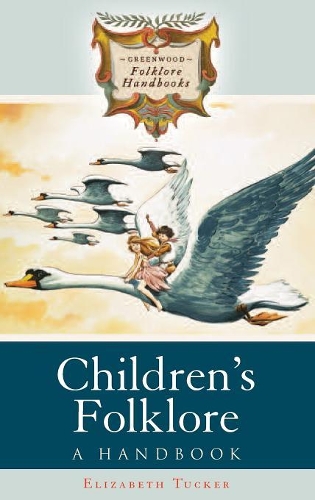
Children's Folklore: A Handbook
(Hardback)
Publishing Details
Children's Folklore: A Handbook
By (Author) Elizabeth Tucker
Bloomsbury Publishing PLC
Greenwood Press
30th September 2008
United States
Classifications
General
Non Fiction
398.2083
Physical Properties
Hardback
172
Description
Children have their own games, stories, riddles, and so forth. This book gives students and general readers an introduction to children's folklore. Included are chapters on the definition and classification of children's folklore, the presence of children's folklore in literature and popular culture, and the scholarly interpretation of children's folklore. The volume also includes a wide range of examples and texts demonstrating the variety of children's folklore around the world. Children have always had their own games, stories, riddles, jokes, and so forth. Many times, children's folklore differs significantly from the folklore of the adult world, as it reflects the particular concerns and experiences of childhood. In the late 19th century, children's folklore began receiving growing amounts of scholarly attention, and it is now one of the most popular topics among folklorists, general readers, and students. This book is a convenient and authoritative introduction to children's folklore for nonspecialists. The volume begins with a discussion of how children's folklore is defined, and how various types of children's folklore are classified. This is followed by a generous selection of examples and texts illustrating the variety of children's folklore from around the world. The book then looks at how scholars have responded to children's folklore since the 19th century, and how children's folklore has become prominent in popular culture. A glossary and bibliography round out the volume.
Reviews
Tucker's overview of child lore contains much valuable analysis. She flourishes at categorization of play mode, thought, and genre. Her models disclose a postmodern trutha child milieu that can be charming, ribald, coarse, and disturbingly violent. In text and photograph, the underlying psychology reveals an aggressive, competitive survivalism blended with aspects of a universal spontaneity of whim and fancy. Succinct passages, 54 glosses, and ample bibliography over a broad historical span make connections with child consciousness essential to the homeschooler, teacher, researcher, and student of early childhood education, psychology, sociology, or literature. Tucker extends research to multiple races. . . . This volume is highly recommended. * ARBA *
When you need the perfect resource on children's folklore for the teacher or parent in your midst, or perhaps something to springboard a student fresh to the field, this succinct and excellent book on children's folklore serves as a ready reference and portal. * Journal of Folklore Research *
Author Bio
ELIZABETH TUCKER is Professor of English at Binghamton University. Her previous books include Campus Legends: A Handbook (Greenwood, 2005).
